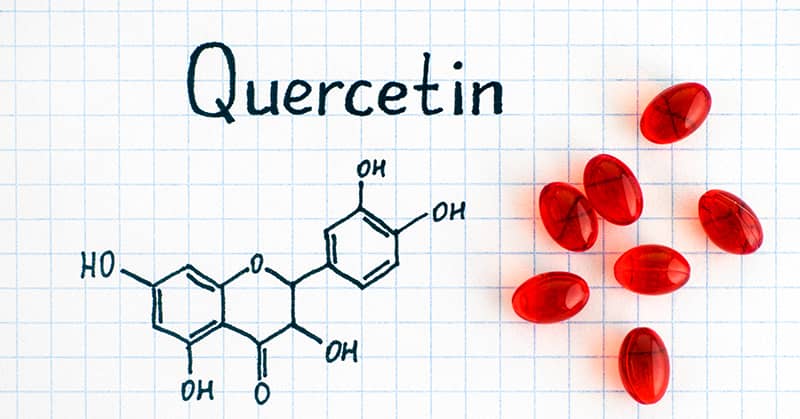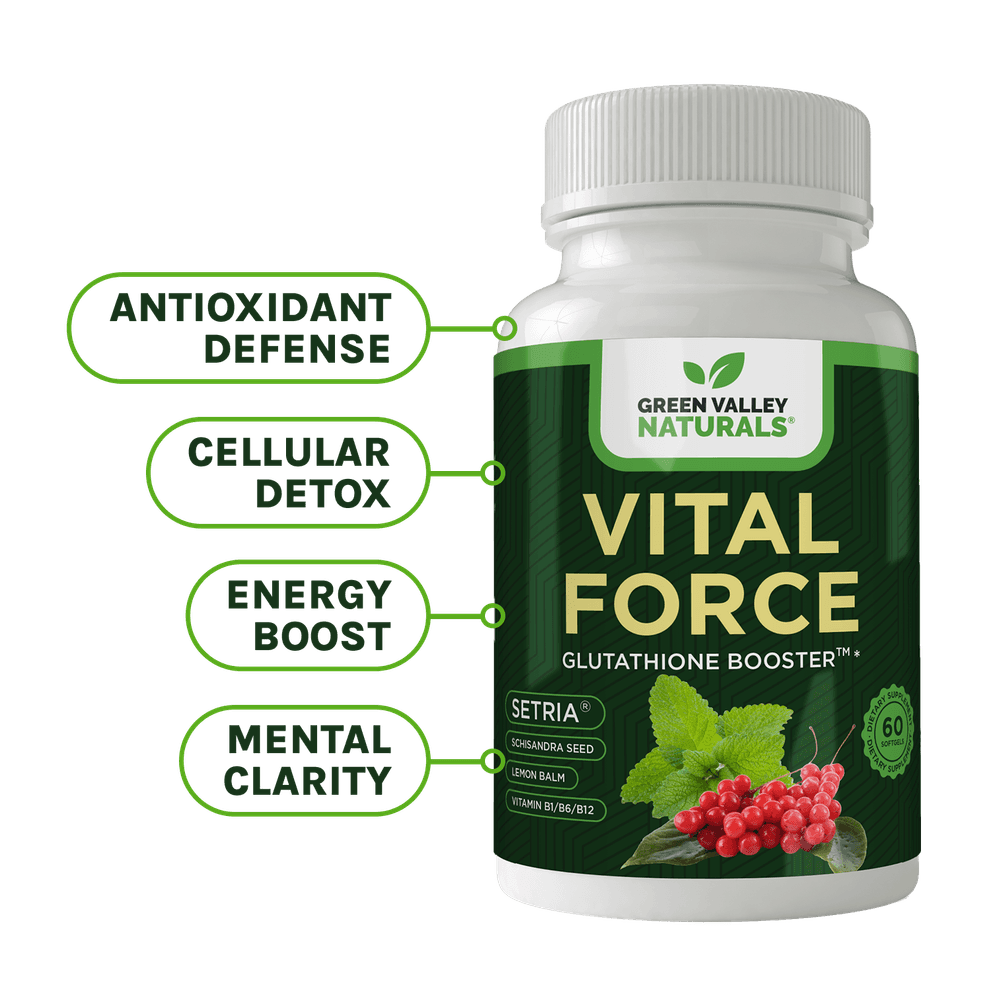
Though it doesn’t get heralded as much as it should, there’s a powerful antioxidant in some fruits and vegetables that can help your body grow healthier and defend against many of the signs and symptoms of aging.
I’m talking about quercetin. A phytonutrient that’s more potent than vitamins C and E. Read on to learn how to put quercetin to work for you…
Key Takeaways
What Is Quercetin?
But eating foods containing quercetin or taking it as a supplement produces important benefits for the body. There’s evidence that this nutrient may help you lose weight by keeping unhealthy and unwanted fat tissue off your waistline.
Helps you maintain a healthy weight
Research demonstrates quercetin can help you control your weight, and it works in several ways.
Tests in Asia show that quercetin can encourage epigenetic changes (differences in how genes are expressed) that limit the creation of new fat cells.1 Additionally, research at Wake Forest indicates that quercetin can spur brown fat to burn extra calories.2 We’ve talked about brown fat before. Your brown fat is a specialized type of fat tissue that produces heat to keep the body warm when the temperature drops. It’s your good fat, not the bad, inflammatory fat that gathers around your waistline and causes disease.
But after quercetin does all that, it isn’t done with going after your extra weight! Other research in Asia reveals that it alters the bacteria in the digestive tract in a way that helps limit how much weight you put on, helps relieve leaky gut by repairing the walls of the intestines and improves glucose tolerance. It may also boost health by reducing the chronic inflammation caused by body fat.3
Then there’s the benefits to your heart…
Better heart health
There’s also evidence that quercetin benefits your heart and cardiovascular system.
A review study involving a consortium of U.S. and European researchers found that taking quercetin supplements in doses of 500 mg or larger per day significantly reduced blood pressure.4 Other scientists have turned up evidence that one of the ways quercetin may reduce blood pressure is by acting as an ACE inhibitor.5 Ace inhibitors relax artery walls by keeping certain enzymes from forcing them to contract tightly.
There are more heart health benefits: In addition to these findings, another study found that quercetin can both prevent and treat heart arrhythmias by reducing oxidative stress in the heart’s mitochondria, reducing cardiac inflammation, and altering the signals that heart cells send to each other.6
Then there’s the powerful way that quercetin helps the body prevent cancer…
Supporting the body’s fight against cancer
According to researchers in the Middle East, quercetin “is an outstanding antioxidant that has a well-documented role in (preventing) different human cancers.”7
The scientists report that quercetin can cause cancer cells to undergo apoptosis (cellular self-destruction) without harming normal cells. But along with getting cancer cells to tear themselves apart, studies also report that it can interrupt the processes that cancer cells use to reproduce and expand tumors.8 And research further shows how quercetin can hamper cancer by lowering the oxidative stress that enables malignancies to spread.9
With results like these, it's no surprise that quercetin has been shown in laboratory cells to fight cellular senescence, a leading cause of aging and illness.
Getting More Quercetin
To get more quercetin in your meals, consume red onions, apples, green tea, capers, and buckwheat. You can also find quercetin in fresh blueberries or in blueberry juice, both of which are filled with other important antioxidants such as vitamin C. If you want to take supplements which we wholly endorse, it’s generally recognized that folks in normal health take up to 500mg daily. Higher amounts are probably also okay but check with a knowledgeable integrative physician who is aware of your personal health situation. Especially if you have kidney problems or you’re already suffering with cancer.
And one more thing to know about taking quercetin supplements: Many folks take quercetin with bromelain, an enzyme that helps you absorb even more quercetin into your body. Taking vitamin C can also boost your quercetin absorption.10
Summary
Quercetin, a powerful antioxidant found in various fruits and vegetables, offers numerous health benefits, including weight management, improved heart health, and potential cancer-fighting properties. Research suggests quercetin can reduce inflammation, regulate blood pressure, and promote healthy gut bacteria, making it a valuable addition to any health regimen.

